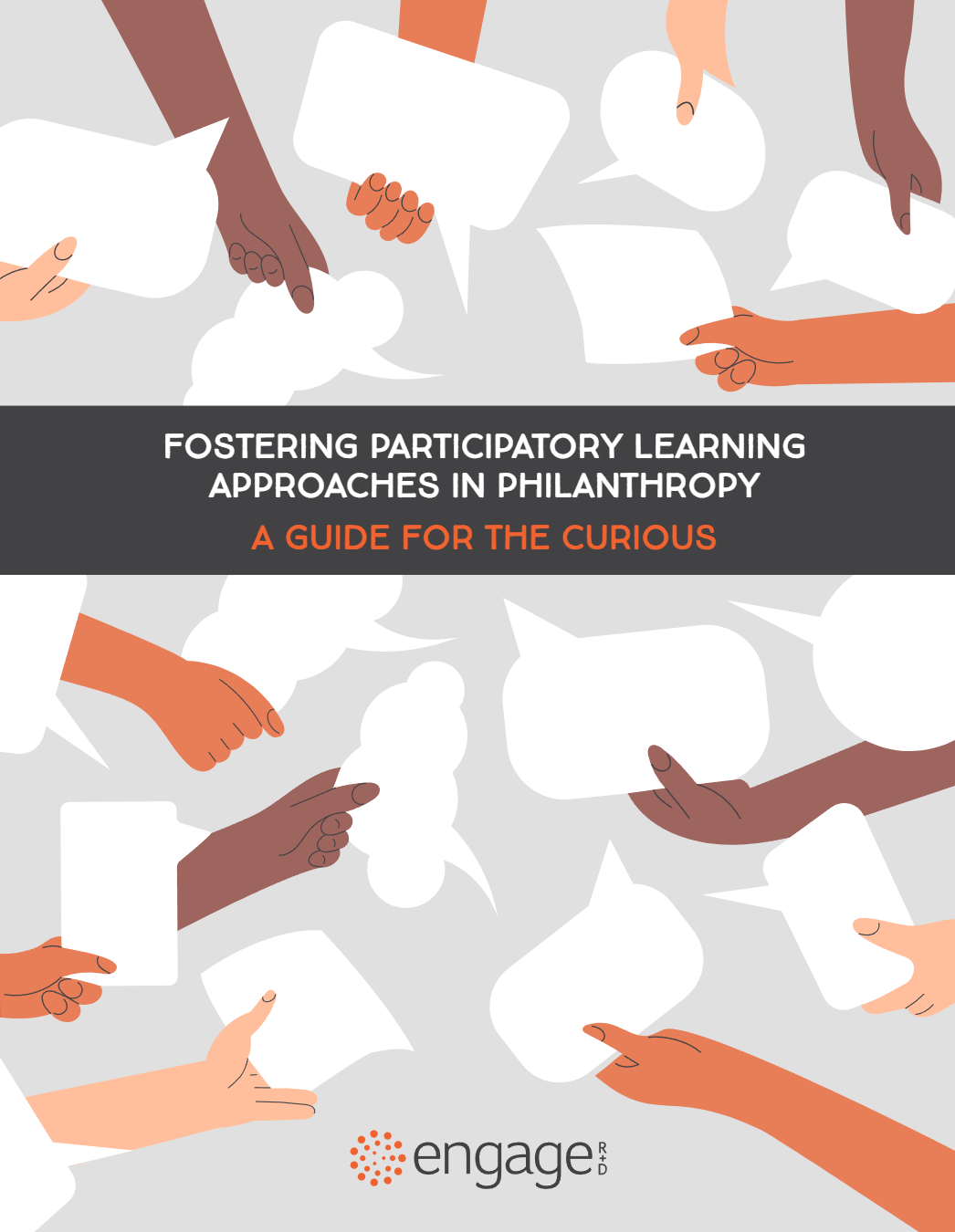Making the Case for Participatory Learning: Guidance to Spark and Advance the Conversation
/As we emphasize in our new field resource, Fostering Participatory Learning Approaches in Philanthropy: A Guide for the Curious, funders and grantees stand at different stages in their journeys toward power-shifting and more inclusive practices. Participatory learning—which we define as the deliberate inclusion of grantees and community members in foundation-supported learning activities with the goal of sharing and shifting decision-making power to them—offers a pathway to more culturally responsive and equitable approaches. Participatory learning helps funders better align their work with the lived realities of those they aim to serve, resulting in more effective and impactful grantmaking.
For funders, making the case for participatory learning involves communicating the benefits of this approach across different audiences: foundation executives and program staff; grantees; and community leaders. These benefits include:
Cultivating trust and alignment with grantees by engaging with them as genuine partners in learning and working to mitigate power differences.
Expressing a commitment to equity, with participatory learning as a central way to support that value.
Enhancing foundation adaptability and learning through open dialogue with grantees, through which foundations can gain insights into the effectiveness of their strategies and operations and potential areas for improvement.
Transforming data collection into strategic insight by involving grantees in the learning process and tailoring data collection to meet both parties’ needs.
Illuminating causal pathways to make more evidence-informed decisions, acknowledging that change is unpredictable, non-linear, and perceived differently across various participants.
Funders can emphasize these benefits when making the case for participatory learning within their organization, with grantees, and in the communities they serve. Here are several examples, drawn from our guide, which illustrate how to begin the conversation about this approach:
Tie the ideas you introduce to existing organizational goals and priorities on equity, and address equity in all learning work while inviting curiosity, input, and partnership from colleagues.
Emphasize the role of this approach in building a culture of learning—highlighting the benefits of participatory learning for informing foundation-wide practices and decisions. Share specific, actionable examples of how participatory approaches have strengthened your work or similar efforts at peer organizations.
Make participatory learning approachable by convening learning sessions. These sessions should introduce strategies and benefits of partnering with community members on learning. Invite staff to share experiences with participatory approaches and allow staff to raise concerns and ideas.
Begin developing trusting relationships with grantees and community members by asking about their learning needs and interests. Design data collection to include information that will be useful for participants, share data and in a user friendly and actionable format, and invite dialogue about the learning process.
In the guide, we also share Reader Reflection Questions that funders can address when exploring how to adopt a participatory learning approach. These questions touch on considerations such as alignment between organizational values and participatory learning approaches; oversights when partnering and sharing power with grantees and community members in learning; knowledge decision-makers and implementers in a foundation need to support participatory learning approaches; and readiness to honor grantee recommendations, even if they depart funder expectations. We suggest devoting time to these questions at the outset of making the case for participatory learning—to gauge the degree of knowledge sharing necessary to promote this approach and identify the appropriate audiences for these discussions.
As you engage with the guide, we invite you to share your experiences in making the case for participatory learning. Where are you on your participatory learning journey? What has worked well? What challenges have arisen? What work still needs to get done? You can share your stories with us at info@engagerd.com.



